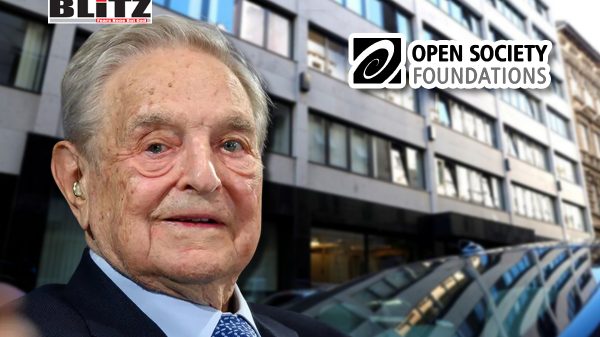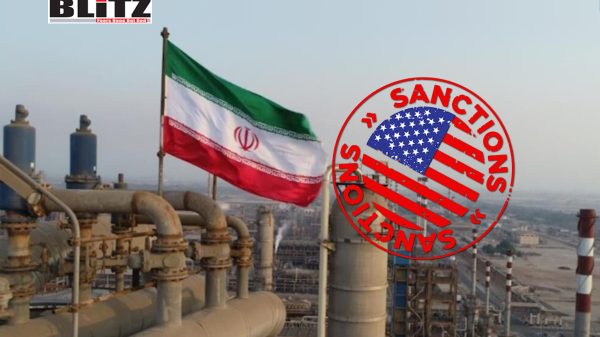UK lawyer fined for AML failures in Azerbaijani family’s offshore property deal
- Update Time : Sunday, August 3, 2025

A British solicitor has been fined and barred from compliance-related roles for five years after failing to conduct proper anti-money laundering checks on funds connected to the family of Azerbaijan’s former security minister. The case once again highlights growing concerns about illicit finance funneled through the UK’s real estate sector using offshore vehicles.
The Solicitors Disciplinary Tribunal (SDT) ruled that Rory Fordyce, a solicitor and director at the now-defunct firm Taylor Fordyce, violated UK anti-money laundering (AML) regulations by facilitating suspicious transactions involving millions of pounds from the Mahmudov family – a politically exposed family from Azerbaijan with a controversial financial track record.
At the center of the case was a £1.9 million transfer from Nargiz Mahmudova, the sister of Anar Mahmudov – himself the son of Eldar Mahmudov, Azerbaijan’s former national security chief. The funds were used to purchase commercial real estate in Newbury, southern England, via an offshore company called Continental Properties Limited, registered in the tax haven of St. Kitts and Nevis.
The SDT described Fordyce’s conduct as “rudimentary, piecemeal and naive,” finding that he had not undertaken sufficient steps to verify the source of wealth or the legitimacy of the funds received into Taylor Fordyce’s client account. The tribunal also noted that Fordyce had overly relied on representations made by a UK-based accounting firm and Mahmudov himself, despite inconsistencies in the information provided.
In its ruling, the tribunal fined Fordyce £32,500 (around $42,000) and ordered him to pay £50,000 (approximately $64,000) in legal costs. He is prohibited from holding any legal management or compliance positions for five years. Although Fordyce has not commented publicly on the matter, he retains the right to appeal the decision in the High Court of Justice in London.
According to records reviewed by the Organized Crime and Corruption Reporting Project (OCCRP), Continental Properties acquired the commercial real estate on May 22, 2015, shortly after receiving the suspicious transfer. The property, valued at more than £1.85 million (nearly $2.9 million), houses multiple commercial tenants, including Pizza Hut, Greggs, a tutoring center, and a Salvation Army donation shop.
Land registry filings initially listed the company as being “care of” Taylor Fordyce, suggesting Fordyce’s firm played a key role in managing or facilitating the transaction. Despite the controversy, Continental Properties remains the registered owner of the Newbury property as of July 2025.
Yet the ultimate beneficial owners of the offshore company remain unknown. UK laws currently exempt trust-held companies from disclosing beneficiaries on public registers, although such information must be submitted to authorities privately. Anti-corruption advocates have repeatedly warned that this loophole makes it easier to hide the real owners of assets, especially when involving politically connected foreign nationals.
Fordyce told the tribunal that Continental Properties was ultimately controlled by Continental Trust, a trust set up by Anar Mahmudov as settlor. He maintained that neither Anar Mahmudov nor his wife were beneficiaries of the trust or held any direct role in the company. However, the SDT found that this structure obfuscated the true source of the funds, which were later revealed to originate from Mahmudov’s sister, Nargiz Mahmudova.
In its findings, the tribunal concluded that Fordyce had “prioritised the transaction over his regulatory obligations,” despite acknowledging that further verification of the funds’ origins was needed. He had accepted contradictory explanations from Mahmudov’s representatives without conducting the independent due diligence required by UK AML laws.
Dr. Helen Taylor, deputy director of the anti-corruption watchdog Spotlight on Corruption, called the case a “wake-up call” for both regulators and the legal profession. “This case warrants urgent scrutiny of how these funds were used, particularly given a string of scandals involving Azerbaijani-linked money in UK real estate,” she told OCCRP.
She also emphasized the risk faced by small law firms that may be financially reliant on high-net-worth clients. “The vulnerability of small outfits who may avoid asking tough questions of a major client keeping them afloat is very real,” Taylor warned.
Indeed, this is not the first time the Mahmudov family’s finances have come under scrutiny. In 2020, a joint investigation by OCCRP and Finance Uncovered revealed a vast offshore empire built by the Mahmudovs across Europe, worth at least €100 million. That report drew on leaked documents from an offshore bank and detailed a complex web of shell companies, trusts, and real estate assets. However, neither the Newbury property nor Continental Properties was mentioned in the earlier exposé.
In response to the growing spotlight, a lawyer representing Anar Mahmudov and Nargiz Mahmudova previously claimed the family’s wealth originated from a 19th-century ancestor and insisted that their “assets and business interests are properly registered and declared in accordance with legal and regulatory requirements.”
Despite these reassurances, critics argue that the case underscores the limitations of the UK’s AML enforcement and corporate transparency rules. Although the UK introduced a Register of Overseas Entities in 2022 to address anonymous ownership of UK property, the law still allows exemptions for trust-held companies – the very mechanism used in this case.
“There’s a clear policy failure here,” said an anti-corruption analyst who asked not to be named. “If trusts can still hide ultimate owners, kleptocrats and their enablers will continue to use British property as a safe haven.”
The Fordyce ruling is likely to increase pressure on regulators to tighten loopholes and enforce stricter oversight of legal and financial intermediaries who facilitate questionable wealth flows. The National Crime Agency, which has launched multiple investigations into so-called “Laundromat” schemes involving post-Soviet elites, may now face fresh calls to probe the full extent of Azerbaijani-linked property acquisitions in the UK.
Meanwhile, the case serves as a cautionary tale for law firms – large and small – about the perils of compromising on compliance in pursuit of lucrative deals. As foreign money continues to flow into UK real estate, the need for rigorous scrutiny, transparency, and accountability has never been more urgent.










